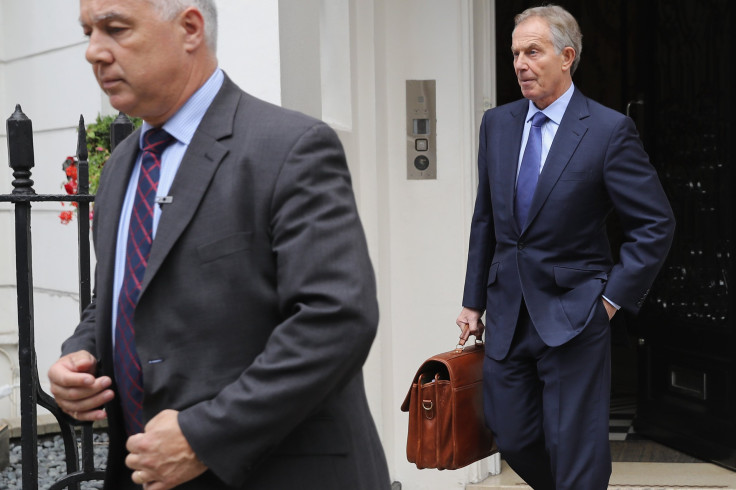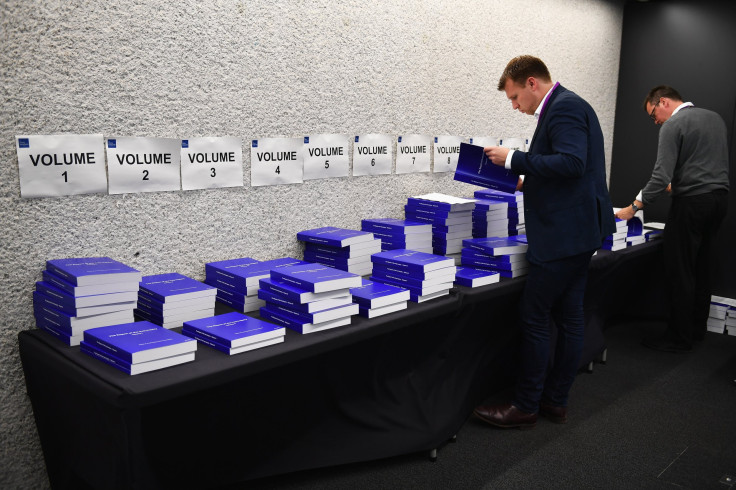Read The Full Chilcot Inquiry Report: 5 Revealing Conclusions About Tony Blair And The UK's Role In The Iraq Invasion And War

After seven years and many delays along the way, the inquiry into the United Kingdom's policy in Iraq from 2001 to 2009 led by Sir John Chilcot revealed Wednesday that the British government chose to participate in the invasion of Iraq before all options were exhausted while underestimating the consequences of invading the country ruled by Saddam Hussein.
The full 12 volume report, at 2.6 million words, is available online here. The executive summary alone is 150 pages and is available here. The long-awaited report traces the U.K.’s strategy in Iraq beginning in the 1990s, examines claims of weapons of mass destruction and investigates the invasion and reconstruction periods. The report was tasked with answering whether it was “right and necessary” for the U.K. to invade Iraq in March 2003 and whether the U.K. both could and should have been better prepared for what came next. The report does not take a position on whether then Prime Minister Tony Blair or other government officials violated international law, the BBC reported.
Here’s a look at five key findings from the report.
1. The report found that the U.K. under Blair did not exhaust all options before joining an international coalition in invading Iraq. “We have concluded that the U.K. chose to join the invasion of Iraq before the peaceful options for disarmament had been exhausted. Military action at that time was not a last resort,” Chilcot wrote in a statement released along with the report.
2. The report found that government judgments regarding the threat posed by weapons of mass destruction were not complete. “The assessed intelligence had not established beyond doubt that Saddam Hussein had continued to produce chemical and biological weapons," it read.
3. While it took less than a month to topple Hussein, the U.K. was not ready to explain to the public the next stage. “The U.K. was unprepared for the media response to the initial difficulties. It had also underestimated the need for sustained communication of key strategic messages to inform public opinion about the objectives and progress of the military campaign, including in Iraq,” the report found.

4. The U.K. was not prepared for the reconstruction phase in Iraq, the report concluded. “Many of the failures which affected pre‑invasion planning and preparation persisted throughout the post‑conflict period. They included poor inter‑departmental co‑ordination, inadequate civilian-military co‑operation and a failure to use resources coherently,” it read.
5. In a review of resources needed for participating in the invasion and the later sustained presence in Iraq, the report found, “the government was slow to recognize that Iraq was an enduring operation, and to adapt its funding arrangements to support both military operations and civilian activities.”
© Copyright IBTimes 2025. All rights reserved.






















